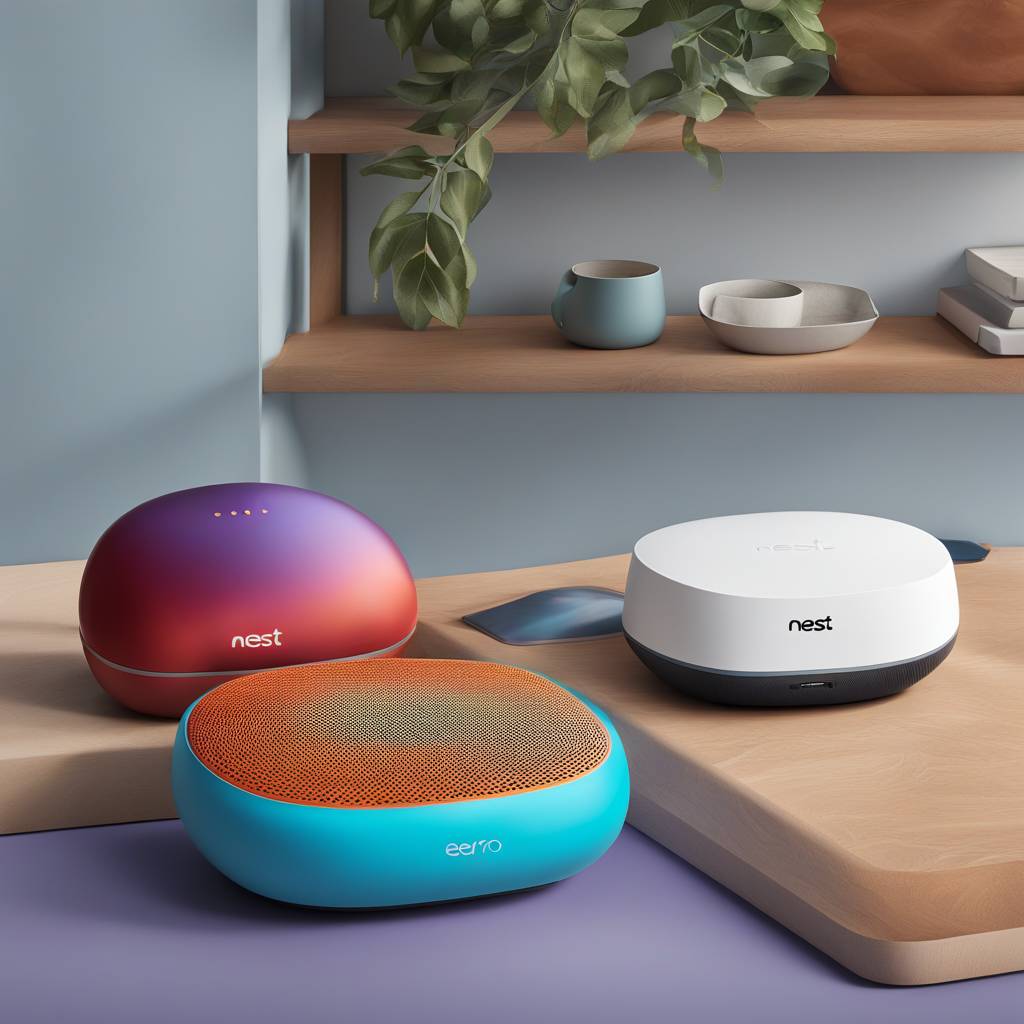Upgrading to a mesh router that uses multiple devices to relay a better Wi-Fi signal throughout your home is a smart move, especially if you live in a large, multistory home. Two notable options on the market are the Google Nest Wifi Pro and the Eero Pro 6E, both promising top-of-the-line mesh performance with support for Wi-Fi 6E and smart home integration. Each system has its own strengths, so let’s dive into a comparison between the two.
Starting with the Google Nest Wifi Pro, it offers faster speeds with full support for Wi-Fi 6E, allowing devices to connect over the newly unlocked 6GHz band. The devices are identical and interchangeable, with no separate extender devices. In contrast, the Eero Pro 6E is the fastest and most capable mesh router from Eero, equipped with Wi-Fi 6E support and radios for Zigbee and Thread. It is priced slightly lower than other top Wi-Fi 6E mesh options.
When it comes to aesthetics, Nest Wifi Pro offers more colorful options compared to the all-white design of Eero Pro 6E. In terms of hardware, Eero has the edge with multi-gig Ethernet jacks and backwards compatibility, while Nest lacks compatibility with older devices. In performance testing, Eero showed higher average download speeds but also experienced slower speeds in some cases, while Nest was more stable with consistent speeds. However, Eero had lower latency spikes compared to Nest.
In terms of ease of use, both systems offer simplified app controls for easy setup and management of the network. When it comes to smart home integration, Eero’s built-in Zigbee radio gives it an advantage over Nest, with support for a wider range of smart home devices. In terms of value, both systems offer competitive pricing for Wi-Fi 6E routers, making them attractive options for consumers looking to upgrade.
Overall, both the Google Nest Wifi Pro and the Eero Pro 6E are solid choices for upgrading your home network. While Eero has some advantages in terms of hardware features and performance, Nest Wifi Pro offers a colorful design and seamless integration with the Google Home app for smart home management. Ultimately, the choice between the two systems will depend on individual preferences and specific needs, but both are recommended options in the mesh router market in 2024.


